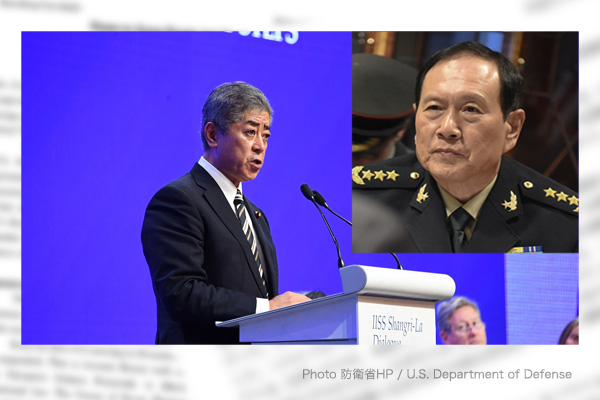On June 6, the Japanese House of Representatives passed a resolution condemning Hodaka Maruyama, expelled from the Japan Innovation Party, for his remark suggesting a war for winning back the Northern Territories from Russia. In fact, Japan without nuclear weapons has little chance to win back the territories through a war with Russia, a nuclear power.
Meanwhile, Chinese Defense Minister Wei Fenghe said at the annual Asian security summit known as Shangri-La Dialogue in Singapore on June 2 that “If anyone dares to split Taiwan from China, the Chinese military has no choice but to fight.” Given that Chinese President Xi Jinping made a similar remark in the beginning of this year, a chance for China’s use of force against Taiwan is far higher.
The resolution against Mr. Maruyama noted that his remark greatly harmed Japan’s national interest. If China seizes Taiwan, Sea Lines Of Communication for Japan will be threatened and a cornerstone of the first island chain extending from Japan via Taiwan to Borneo will be lost, harming Japan’s national interest seriously. Why doesn’t Japan’s National Diet condemn the remark by the Chinese defense minister?
Questioning adequacy of Japanese minister’s planned visit
Japanese Defense Minister Takeshi Iwaya reportedly plans to visit China within this year for a meeting with his Chinese counterpart Wei. Chinse Coast Guard ships, put under control by the People’s Liberation Army since last year, have entered the contiguous zone of the Senkaku Islands for about 60 days in a manner to achieve the longest continuation of such operations since Japan’s nationalization of the islands in 2012, provoking Japan. Why does the defense minister plan to visit China at such moment?
As for reciprocal visits between the Japanese and Chinese defense ministers, then Japanese Defense Minister Yasukazu Hamada visited China in 2009 in exchange for then Chinese Defense Minister Cao Gangchuan’s trip to Japan in 2007. Coming next should be the Chinese defense minister’s visit to Japan. If Iwaya visits China even at the cost of reversing the order, China may see Japan as easy to deal with, looking down on Japan.
At the Shangri-La dialogue, there was a scene where Iwaya was smilingly shaking hands with his South Korean counterpart Jeong Kyeong Doo. South Korea has refused to admit its destroyer’s direction of a fire-control radar at a P-1 patrol plane of the Japanese Maritime Self-Defense Force late last year but demanded Japan to apologize for the incident. Iwaya’s amicable attitude might have led South Korea to become confident that it can do anything against Japan.
Is Japan lending a helping hand to Beijing?
After China’s military crackdown on pro-democracy demonstrators at Beijing’s Tiananmen Square on June 4, 1989, Japan took the initiative in lending a helping hand to China that plunged into international isolation due to the massacre. Plagued with its trade war with the United States, China is now wooing Japan. I am afraid that Iwaya’s planned China visit may lend another helping hand to Beijing.
I heard from a former minister of internal affairs and communications that when the then minister tried to get unanimous approval on a bill for restricting growing land purchases by the Chinese in Japan at a meeting of the ruling Liberal Democratic Party, Iwaya aborted the bill by opposing it for the reason that the LDP’s rightward tilt would contribute to reducing votes for the party. I can’t but hope that Iwaya’s China visit would not be politically exploited by Beijing.
Fumio Ota is a senior fellow and a Planning Committee member at the Japan Institute for National Fundamentals. He is a retired Vice Admiral of Japan’s Maritime Self-Defense Force.


